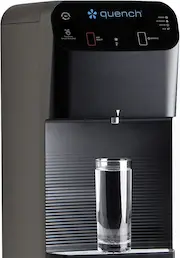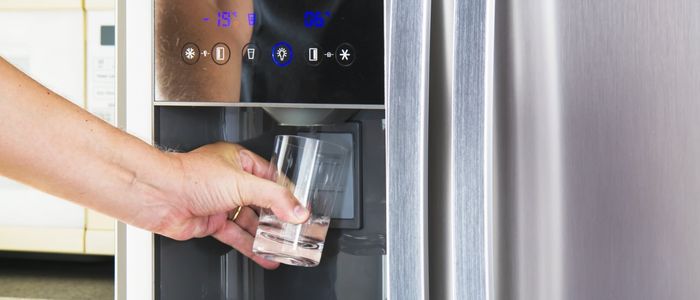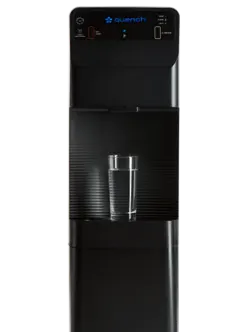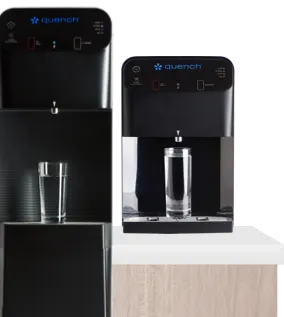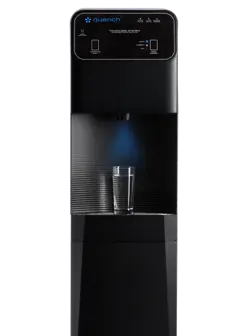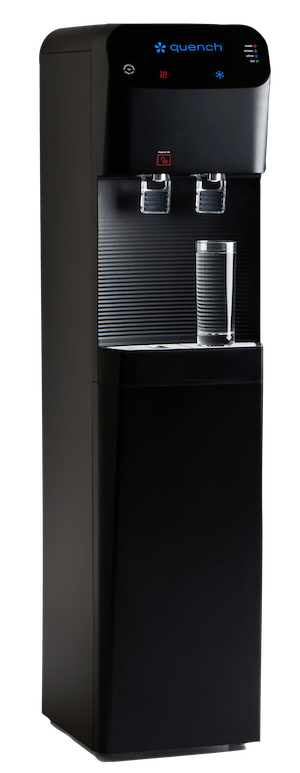Access to filtered, clean water is essential to support our health and well-being while simultaneously providing other valuable benefits as a result. However, while many rely on a refrigerator water filter with built-in technology, its level of effectiveness can vary. Moreover, the water quality of bottled water solutions might not be high enough to meet the needs and preferences of end users — leaving individuals at risk of exposure to impurities and harmful contaminants.
With this in mind, we’re taking a closer look at the problems associated with fridge filters and how you can ensure superior water filtration moving forward.
Be Aware of Substandard Carbon Filters
A fridge water filter commonly uses carbon filtration to remove compounds that affect taste and smell. How does this work? A carbon filter is effective because the permeability of the material allows water flow while the activated carbon takes hold of all impurities, including harmful substances like pesticides or petrochemicals. The ability of refrigerator filters to clean water is measured in microns — where a lower micron rating represents a greater ability to capture small contaminants. Overall, a refrigerator filter has an average rating of 20 microns, which is considerably higher than more cutting-edge filtration options.
The true effectiveness of a fridge filter relies on the water being in contact with the carbon for extended periods of time. And, in a high-traffic environment such as a busy office, this is likely not the case. The refrigerator water filter is often out of sight, making it easy to forget to clean them or introduce a replacement filter if needed. As a result, these water filters often become clogged with bacteria that pose unseen risks.
Refrigerator water filter systems are often limited and unable to catch many harmful contaminants. Moreover, the manufacturing process can also introduce impurities directly into the filters, per a report from the Livestrong Foundation.
Your Workplace Refrigerator Could Be Contaminated
Public drinking water systems regulated by the Environmental Protection Agency provide drinking water to 90% of Americans, and these systems are required to comply with filtration standards set forth by the Safe Drinking Water Act — meant to remove over 80 different contaminants from water sources, including:
- E-coli
- Chlorine
- Arsenic
- Lead
However, the Centers for Disease Control and Prevention (CDC) reports that despite the U.S. having one of the safest drinking water supplies in the world, about 7.2 million Americans get sick every year from diseases spread through water. And, to the dismay of most homes and workplaces, a fridge filter can be the main culprit to take into account.
Such a high number of individuals fall ill each year due to waterborne bacteria, which need fungus and moisture to survive – 2 elements that are present in your refrigerator. The risks associated with drinking water filtered by a refrigerator, include exposure to microorganisms such as coliform and salmonella, which affect your health and the quality of water. Furthermore, contaminated foods and inadequate refrigeration can cause foodborne illnesses, such as the listeriosis outbreak that was seen in Australia and South Africa, reported by the World Health Organization. Symptoms include a high fever of 100℉, vomiting, and diarrhea. Additionally, should any items in the fridge become moldy or harbor E. coli, there’s a possibility that the bacteria will contaminate the water supply itself.
The unfortunate truth is refrigerator filters can’t always be relied on to remove harmful substances and bacteria from your drinking water, and, therefore, the water isn’t as clean as it could be. As a result, workplaces and commercial spaces are increasingly turning their attention to drinking water solutions that can offer their employees and guests some much-needed peace of mind while they hydrate.
Drink Highly-Filtered Water at Work
For workplaces in pursuit of a solution that mitigates the dangers of fridge filters while elevating the tap water available, look no further than a bottleless water dispenser. A bottleless cooler connects right to your building’s existing water source to ensure your teams have access to an endless supply of water as needed. The point-of-use dispensers leverage a more advanced water filter system so your employees, guests, and customers can rest assured that the water is not only clean but supportive of their long-term well-being.
Added Cleaning Technology From Quench
Working with a dependable water service provider like Quench means your workplace has access to coolers with added hygienic features including:
- In-tank UV technology: UV technology uses an LED UV-C light bulb in the storage tanks of Quench machines to continuously maintain water cleanliness. This helps reduce harmful levels of bacteria before consumption while guaranteeing your workplace water supply meets high standards and requires little maintenance along the way.
- Built-in antimicrobial protection: A majority of dispensers from Quench also leverage antimicrobial surface protection to inhibit the growth of microorganisms, including odor-causing bacteria and mold, on the dispensing area and filter. This is designed to reduce the potential buildup of stains and odors, which may be ideal for high-risk settings such as schools, hospitals, and hotels.
- Touchless capabilities: Touchless water dispensers from Quench are operated using sensor-activated technology or foot pedals. Users simply hover their hands or fingers over a sensor panel or step on a foot pedal to release a stream of water. This ultimately removes the need for users to touch any buttons or dials, which minimizes the opportunity for germs to spread between colleagues.
Bottleless Water Coolers — The Cost-Effective and Eco-friendly Choice
Choosing a bottleless water cooler from Quench can help your workplace eliminate the risks of fridge filters while improving time and effort efficiencies — achieved by removing the need for transportation, storage, and disposal associated with bottled water solutions. As a result, workplaces can enjoy:
- Improved hydration levels
- Reduced safety risks
- Increased space efficiency and cost-effectiveness
- Greater sustainability
- A more focused, energetic, and productive workforce
- Healthier employees
Choosing a bottleless water dispenser not only offers valuable health and safety benefits but also demonstrates an awareness of societal demands and a willingness to reduce plastic consumption. In fact, Business leadership Today reports that sustainability is incredibly significant to employees in the modern workplace, serving as an important indicator of engagement, retention, performance, and well-being long-term. When these benefits are combined with easy installation and reliable ongoing service, it’s hard not to opt for a bottleless drinking water solution.
Explore our wide range of bottleless coolers, and for an even higher-quality water supply, consider options with ice dispensing capabilities. Not sure what you need? Try our product finder to get matched with the cooler that meets your unique business needs or get a free quote to get started.
